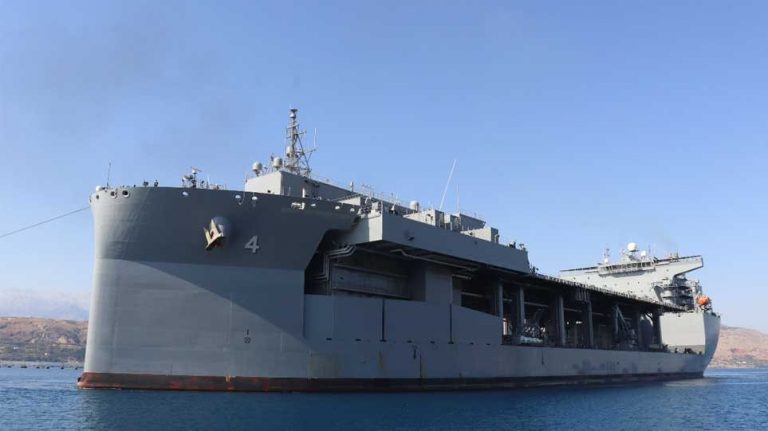Though it was lost in the headlines surrounding the U.S. presidential election, the Navy just recently announced one of its ships would call Greece home for the first time since the Cold War. The base, at Souda Bay, is ideally situated for a U.S. naval presence. Its deepwater port on the island of Crete is in the heart of the increasingly important and contentious Eastern Mediterranean. The newly homeported ship, the USS Hershel Williams expeditionary sea base, will project U.S. power and provide a much-needed signal of Washington’s intent to remain a regional player.
But this move, welcome as it is, should be a point of departure and not the culmination of closer bilateral ties. Greece is the pivot point in the Eastern Mediterranean, which is rapidly reemerging as a major geopolitical flashpoint after decades of relative calm. This should come as no surprise. As the “sea between the lands,” the region is the strategic crossroads of Europe, Asia and Africa, and thus home to recurrent conflict since the Greco-Persian wars 2,500 years ago.
Yet the current troubles are of more recent vintage. Israel, Cyprus and Egypt have made some of the largest combined offshore energy finds anywhere in the world over the past decade. Meanwhile, Turkey has shifted markedly under President Erdoğan, from a reliable NATO ally to a disruptive Islamist-nationalist regime. The further Turkey heads in this direction, the more it pursues a militarized foreign policy, premised on use of force to overthrow the regional status quo. And for the first time since the Cold War, great-power competition is back in the Eastern Mediterranean, thanks to Russia’s military presence in Syria and Libya as well as the region’s crucial location for China’s Belt and Road Initiative.
Apple car to arrive by 2024 with ‘next-level’ battery technology
Russian and Chinese bombers fly over Japanese Sea in show of power (video)
These trends are worrisome for the United States, and in part, enabled by limited engagement from Washington. The coronavirus-related global economic downturn is stalling regional energy development, which undermines American ambitions to reduce Europe’s dependence on Russian natural gas. Turkey is contributing to the regional angst, using gunboat diplomacy to stake its own dubious claims to these resources. And there remains a real risk that Ankara and Moscow simply divvy up Libya between them, giving both countries dangerous footholds on Europe’s southern flank.
Read more: The National Interest
Ask me anything
Explore related questions





